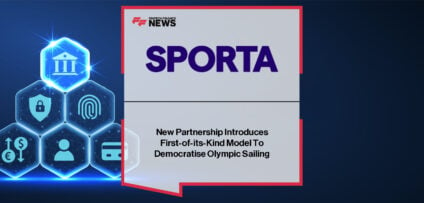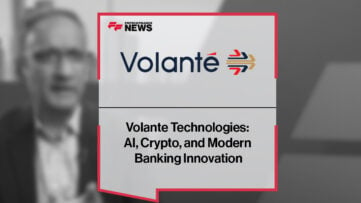Breaking News

Making Headway for a New Payments Architecture
A New Payments Architecture for retail interbank payment systems in the UK is being developed that will allow for simpler access, greater innovation, increased adaptability and better security, while maintaining the resilience necessary to meet the needs of the current and future payment service users.
fscom; specialists in providing regulatory advisory services to FinTech institutions across the UK, were given an insight into the New Payments Architecture organised by the inspirational Anne Pieckielon; Director of Product and Strategy at Bacs.
The briefing identified the benefits of the proposed changes but also the barriers to competition and potential problems. While there is every intention to welcome new players and become increasingly transparent, the complexity of both the current architecture and anticipated future strategies, can’t be underestimated.
This article will therefore explain the key terms and pertinent market players, to provide a valid understanding for e-money and payment institutions on how they can take advantage of, and get involved in, these new payment developments.
What is the payments architecture?
Payment systems are the rails on which money is moved. Bacs, Faster Payments and CHAPS are examples of payment systems that move money between accounts, known as interbank payment systems. Whereas Visa, MasterCard and Amex facilitate payments using credit and debit cards.
Each payment system is run by its own scheme, or Payment System Operator (PSO), with its own membership, governance, standards and processes. They have developed and progressed incrementally over a long period of time on different platforms, with differences in standards, but in many cases, possess overlapping ownership.
Despite the inclusion of a regulatory obligation arising from the first Payment Services Directive, which allows for fair access to payment and e-money institutions, it wasn’t until the Payments Council made the miscalculated decision to phase out cheques by 2018, without introducing any clear alternative, that the Government had the incentive to bring a Payments Strategy into regulatory oversight.
This ultimately led to the creation of the Payment Systems Regulator (PSR), a subsidiary of the Financial Conduct Authority, who would adopt the role of an economic regulator and set objectives to ensure that payment systems are developed and operated in the interests of the users, while promoting competition and innovation.
The Payments System Regulator
The PSR is not to be confused with the acronym PSRs, which refers to the legislation that implements the Payment Services Directive in the UK, the Payment Services Regulations 2009 & 2017.
Instead, the PSR has direct authority over eight payment systems designated by HM Treasury.
These eight payment systems are significantly important to UK payments. Any disruption in operation would likely have serious consequences for those who use its services, which as it stands, includes the majority of us.
They exist as two card-based systems and six interbank systems. These include:
- MasterCard (owned by MasterCard Inc) – a card payment system.
- Visa Europe (jointly owned by Visa Europe and Visa UK) – a card payment system.
- Bacs (owned by Bacs Payment Schemes Ltd) – the scheme for regular bulk, file-based credit transfers and Direct Debits.
- CHAPS (owned by CHAPS Clearing Company Ltd) – the UK’s same day high value payment system for both wholesale and retail payments. CHAPS Payments are settled individually intraday in central bank funds.
- FPS (operated by Faster Payments Scheme Ltd) – Faster Payments enable real time credits: on-line, telephone and mobile applications.
- LINK (operated by LINK Scheme) – facilitates end-users’ access to cash via the UK’s largest ATM network.
- Cheque & Credit (operated by the C&CCC (Cheque & Credit Clearing Company)) – is responsible for managing the processing and settlement of cheques and other paper payment instruments in Great Britain.
- NICC (operated by the Belfast Bankers’ Clearing Company) – oversees the clearing of sterling cheques and paper credits in Northern Ireland, along with euro cheques drawn on Northern Ireland banks.
The Payments Strategy Forum
The PSR established the Payments Strategy Forum to bring together industry and service-user stakeholders, with the aim of developing and agreeing strategic priorities for the long-term development of payment systems, where collaboration is vital.
As a result, a pivotal strategy entitled: “A Payments Strategy for the 21stCentury – putting the needs of users first”, was developed and published in November 2016.
Through this, the Forum has already delivered a proposal for the future of the nation’s payment system, setting out design and implementation phases for the construction of the New Payments Architecture (NPA), which is also known as the Simplified Payments Platform (SPP).
Through extensive research, which targeted the main issues highlighted within the current strategic models, the design of the NPA will include the below features.
- A layered infrastructure to create innovation and competition.
- A common messaging standard (ISO 20022) to support interoperability and enhance the use and value of payments related data.
- An infrastructure that supports competition in payment initiation and account information service providers (PISPs and AISPs) and third party service providers (TPSPs) such as independent software providers, bureaux and gateway providers.
- A flexible framework that supports the delivery of new end-user overlay services.
- A single clearing and settlement model for the Bacs, Faster Payments and, eventually, Image Clearing System (ICS).
- A simplified payment model with only cleared transactions sent for clearing and settlement – simplifying and removing processes such as for ‘unpaids’.
The Forum has also posed various design questions and potential solutions to the PSR regarding the NPA. They now await feedback in relation to the below.
- Further clarity has been requested on how the NPA builds on existing industry and regulatory activity.
- Further clarity required on how Direct Debits will work, and be improved upon, when delivered over the NPA (e.g. enhanced data, process reduction).
- A better understanding has been requested on the wider eco-system impacts of changing to a push payment model.
The NPA is necessary to support the full vision outlined in the strategy proposed by the Forum. The strategy foresees a UK payments market where payment systems correspond and connect across a range of different payment platforms.
Current payment systems not only use dated technology, but they also present various technological barriers and limitations. This leaves the playing field wide open for a New Payments Architecture which allows for greater innovation, increased adaptability and better security.
To find out more about payments regulation, contact Alison Donnelly at fscom or visit: www.fscom.co.uk
- DIFC’s Dubai FinTech Summit Expands Globally with Pakistan Digital Authority Read more
- GoldenPeaks Capital Secures Largest PPA Deal in Hungary With Hankook Read more
- Volante Technologies: AI, Crypto, and Modern Banking Innovation Read more
- Payment Spayce and Sagicor Bank: Innovating Fintech for the Caribbean Market Read more
- Top Companies Supporting Former Workers with German Pension Refunds Read more












